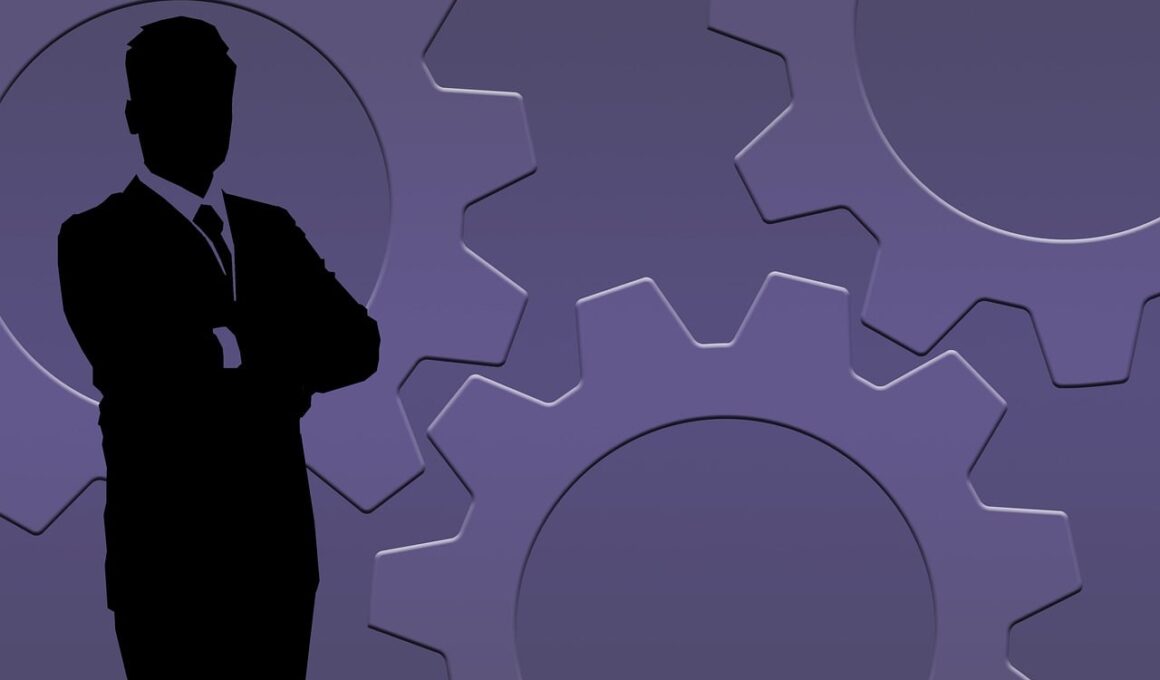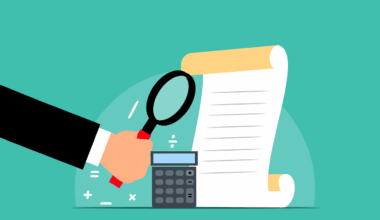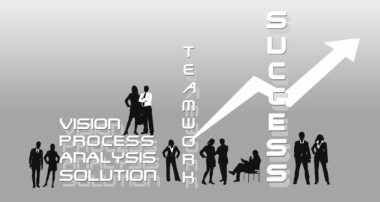The Role of Technology in Modern Process Costing
Technology fundamentally transformed process costing by integrating automation and data analytics into traditional methodologies. In this modern approach, businesses can maintain accurate records, enhancing the accuracy of cost estimations. This integration employs software tools specially designed for cost accounting, allowing for real-time cost tracking. Advanced technology facilitates the collection of data from multiple sources, ensuring that managers receive valuable insights promptly. Notably, such tools offer a level of detail that manual processes could not match. Automation reduces the chance for human error, ensuring that the data is both consistent and reliable. Additionally, automated systems help businesses achieve significant productivity gains. This means that employees can focus on more strategic tasks, rather than getting caught up in tedious calculations. Furthermore, implementing technology in process costing empowers organizations to adapt swiftly to changes in production processes. Firms can easily update their costing strategies based on changing market conditions and production needs. Consequently, companies can respond proactively to cost drivers, leading to better decision-making and enhanced profitability. In essence, embracing technology within process costing is not merely an option; it is imperative for competitive survival in today’s business environment.
One key example of technology’s role in process costing is the use of Enterprise Resource Planning (ERP) systems. These comprehensive software solutions streamline and integrate various business processes, including finance, manufacturing, and human resources. This integration provides a holistic view of a company’s operations, allowing for accurate assessment and analysis of costs across different stages of production. Moreover, real-time data generated by ERPs enables managers to monitor costs closely, adjusting strategies as needed to optimize efficiency. ERPs also support the standardization of processes, which is crucial for maintaining consistency in cost calculations. By standardizing the methods used to track and report costs, organizations can reduce discrepancies in their accounting practices. This improved accuracy translates into better financial reporting and compliance with regulatory requirements. Additionally, ERPs facilitate better collaboration among different departments, as they provide a central hub for information sharing. When marketing, production, and finance sectors efficiently communicate, more informed decisions can be made concerning budgeting and resource allocation. In conclusion, ERP systems represent a vital component of modern process costing, enhancing organizational performance and validating cost control efforts, establishing a prepared environment for growth.
Data Analytics and Cost Optimization
Data analytics plays a pivotal role in refining process costing by identifying trends and patterns that may go unnoticed. The capacity to analyze vast datasets empowers organizations to optimize expenses related to production and overhead. Advanced analytics tools provide insights into how resources are allocated and where inefficiencies exist. Organizations can employ predictive analytics to forecast future production costs based on historical data. This proactive approach allows decision-makers to anticipate financial challenges and take corrective measures in advance. By implementing these strategies, businesses can better allocate their budgets, reducing unnecessary expenditures while maximizing profits. Additionally, data visualization tools convert complex data into easily understandable formats, enabling stakeholders to comprehend cost implications swiftly. This capability fosters a culture of accountability within organizations, ensuring all employees comprehend their roles and contributions to cost management. Furthermore, incorporating data analytics into process costing supports continuous improvement initiatives. With real-time insights, managers can make informed adjustments to streamline operations, thus enhancing operational efficiency and productivity. In sum, leveraging data analytics is essential for modern process costing, as it grants organizations the agility needed to navigate a dynamic market and adapt to ever-changing cost structures effectively.
The integration of cloud technology in process costing allows organizations to enhance data accessibility and security. Cloud-based solutions offer the advantages of real-time data accessibility across multiple devices, providing teams with the ability to access critical information anytime, anywhere. This accessibility fosters collaboration among teams, as employees can work together seamlessly on cost-related projects from different locations. Additionally, cloud computing provides robust security features that protect sensitive financial data from unauthorized access. Companies can save significant costs by reducing the need for extensive in-house IT infrastructure. Instead, they pay for cloud storage and services based on actual usage, making budgeting more manageable. Furthermore, regular updates to cloud-based tools ensure businesses leverage the latest technological advancements without incurring hefty upgrade costs. Organizations can maintain competitive advantages by ensuring compliance with the latest regulations through such updated solutions. Moreover, cloud technology enables easy integration with other systems and technologies, promoting a cohesive approach to process costing. This facilitates streamlined operations and reinforces data integrity across different departments. Consequently, moving to cloud-based accounting solutions enhances process costing practices, transforming the way organizations handle their financial management workflows.
The Impact of Artificial Intelligence
Artificial Intelligence (AI) is revolutionizing process costing by enhancing accuracy and providing deeper insights into operational efficiencies. Businesses leverage AI algorithms to improve their cost calculations and identify potential inefficiencies within their production processes. For instance, AI can analyze historical data and detect patterns that human analysts might overlook. This capability allows organizations to make more informed decisions based on solid evidence. Furthermore, AI-driven tools help automate routine tasks, significantly reducing the workload for finance teams. By automating processes such as data entry, companies can minimize errors and enhance overall productivity. Additionally, AI technologies support adaptive learning, which enables cost management systems to evolve based on real-world variables. This adaptability enhances forecasting accuracy, allowing organizations to anticipate future cost trends more effectively. Moreover, AI tools can simulate different costing scenarios, providing insights into how various changes impact overall expenses. This facilitates strategic planning and helps businesses remain competitive in fluctuating markets. Consequently, the integration of Artificial Intelligence into process costing enhances analytical capabilities, promotes efficiency, and fosters a more strategic approach to managing costs within modern organizations.
Technology facilitates compliance with financial regulations and audits, ensuring that organizations uphold transparency in their costing practices. Automated systems can track every transaction in real-time, capturing essential data that supports audit trails. This meticulous tracking ensures that companies maintain accurate records, which are invaluable during audits and regulatory inspections. By simplifying compliance, organizations can avoid penalties and reputation damage due to non-compliance. Moreover, the integration of blockchain technology presents new opportunities for cost accounting as it enhances security and accountability. Blockchain enables secure transactions that are immutable and transparent, providing an additional layer of integrity to cost reporting processes. As a distributed ledger technology, blockchain ensures that all transactions are recorded and cannot be altered once completed. This feature fosters trust among stakeholders and builds confidence in cost-related reports. Additionally, technology provides resources for efficient documentation, enabling organizations to compile comprehensive records seamlessly. This results in a quicker audit process and improved cooperation with external auditors. As compliance requirements continue to evolve, technology plays an integral role in ensuring companies stay ahead of changing regulations, ultimately supporting robust, transparent cost accounting practices.
Future Trends in Process Costing
The future of process costing will likely see advancing technologies continue to shape methodologies significantly. As businesses increasingly adopt IoT (Internet of Things) technologies, sensors will power data collection directly from production lines, allowing for real-time insights into cost variables. This comprehensive data will enable organizations to analyze performance more precisely, identifying areas for potential savings and optimization. Furthermore, machine learning applications may also emerge to predict and enhance cost management strategies based on past and present data. Organizations leveraging predictive modeling can make proactive adjustments to operations, maintaining profitability even in turbulent markets. Additionally, we might witness a greater emphasis on sustainable and ethical costing practices driven by consumer demands. As businesses strive to demonstrate social responsibility, technology will provide tools to accurately account for sustainability-related costs. This accountability will enhance branding and consumer loyalty, ultimately impacting profitability positively. Lastly, organizations will continue to focus on training their workforce to adapt to new technologies, ensuring employees maximize the benefits of tech-driven innovations. In conclusion, the integration of emerging technologies presents an exciting future for process costing, enabling organizations to become more agile, informed, and sustainable in their operations.
In summary, technology plays an essential role in modernizing process costing by enhancing accuracy, efficiency, and compliance. It has transformed traditional methodologies into dynamic systems that respond to real-time data and analysis. Through tools such as ERP systems, data analytics, and cloud computing, organizations can achieve unprecedented levels of insight into their costing processes. The integration of AI further enriches these efforts, providing powerful predictive capabilities while automating routine tasks. With technology facilitating stringent compliance and accountability, businesses can ensure transparency in their costing practices. As we look towards the future, the impact of emerging technologies will continue to shape cost accounting. IoT devices will gather data automatically, adapting to changes in production costs seamlessly. Additionally, sustainable practices supported by technology will define new success metrics for companies. Preparing for these advancements requires strategic investments in talent development to harness technological potential fully. Companies should continually develop their workforce to adapt to a technologically evolving landscape. Thus, embracing technology in process costing is essential not just for efficiency but also for nurturing an agile and innovative organizational culture. The overarching message is clear: organizations must embrace the technology revolution to thrive in the competitive marketplace.





